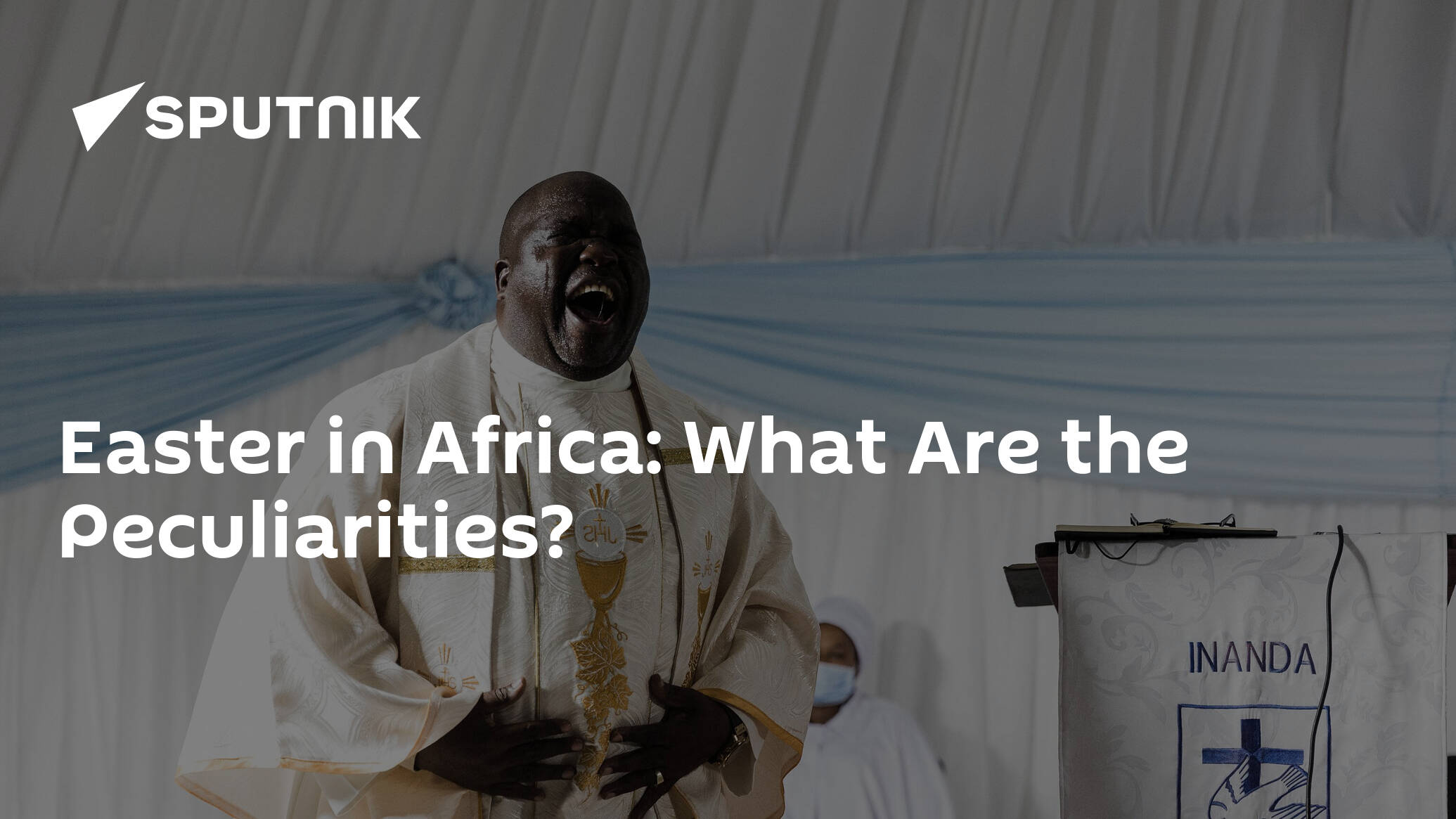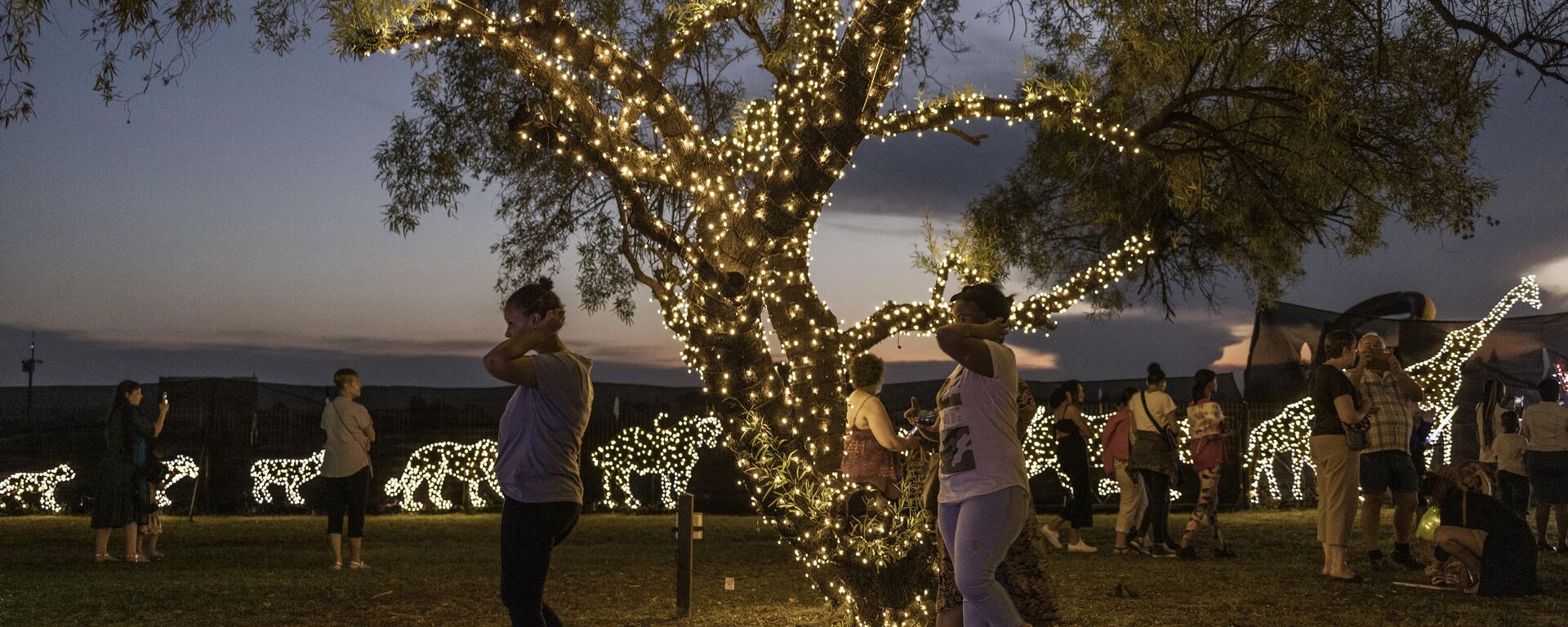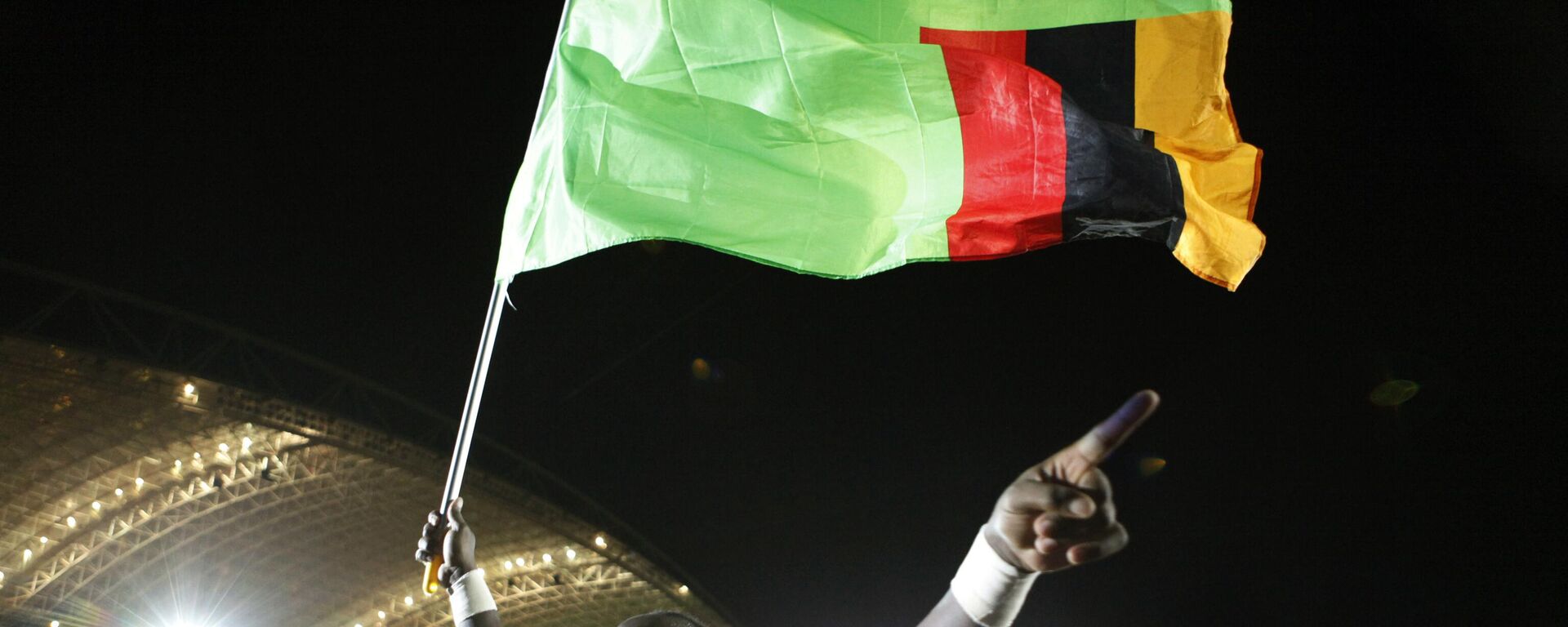https://sputnikglobe.com/20230409/easter-in-africa-what-are-the-peculiarities-1109297124.html
Easter in Africa: What Are the Peculiarities?
Easter in Africa: What Are the Peculiarities?
Easter is a time of remembrance of the crucifixion, death and resurrection of Jesus Christ. As in other parts of the world, hundreds of millions of Christians in Africa celebrate Easter.
2023-04-09T15:50+0000
2023-04-09T15:50+0000
2023-04-09T15:50+0000
africa
festival
easter
christianity
activities
festivities
church
orthodox church
catholic church
protestant church
/html/head/meta[@name=”og:title”]/@content
/html/head/meta[@name=”og:description”]/@content
https://cdn1.img.sputnikglobe.com/img/07e7/04/09/1109299883_0:160:3072:1888_1920x0_80_0_0_aa3f4b27e4e48247e96ce50a945ee711.jpg
Easter is a time of remembrance of the reported crucifixion, death and resurrection of Jesus Christ. As in other parts of the world, hundreds of millions of Christians in Africa celebrate Easter. There are a great number of traditions connected to the religious holiday that are preserved and passed down from generation to generation. While some of the customs are similar to those in other Christian countries, a great number are specifically African.Common activities The Easter church service is the most significant event for African Christians, regardless of denomination. Special church services are held for four days, starting on Thursday, which comes before Good Friday, and ending on Easter Sunday. Dressing is a vital part of Easter traditions in Africa. Some Christians prefer to wear black clothes at services on Good Friday to mourn the death of Jesus. On Easter Sunday, they put on white clothes in order to represent Christ’s alleged rebirth.At the same time, some prefer to wear their best clothes throughout the Easter season, while others wear African traditional dresses.People also collect and distribute Easter eggs to children from low-income schools, which helps to attract everyone’s attention to the celebration and underline the true spirit of Easter.Some Easter celebration traditions tend to differ from one African country to another.EthiopiaAlthough many African Christians observe fasting before Easter, Ethiopians are leading in this tradition. Easter (in Ethiopia it is named as Fasika), heralds the end of 55 days of food abstinence. During fasting, Christians abstain from eating meat or dairy products. Alternatively, they take one vegetarian meal a day. Fasika is one of the oldest Easter traditions in Africa. Although it is similar to fasting in Western churches, it lasts a week longer. During Fasika, all Christian denominations of Ethiopia, including Orthodox, Catholics and Protestants, gather together for a number of traditional ceremonies and events that occur immediately after Easter in accordance with the Western Gregorian calendar.As the Ethiopian calendar is quite similar to the Julian calendar, the country celebrates Easter on a different day compared to many other countries. This year, Easter will be celebrated in Ethiopia on April 16.KenyaKenya also brings various forms of celebrations during Easter holidays. In most cuisines of Kenyan cities and towns, nyama choma – spicy meat cooked on the grill – is served, being accompanied by a porridge made of corn flour, known as ugali. In addition, for Easter, Kenyans prepare chapatis (wheat flour bread, like thin pita bread) and pilau (spiced rice with seasoned meat).Easter celebrations begin on Palm Sunday, with Kenyan children bringing palm leaves to the church and singing hymns, commemorating the entry of Jesus into Jerusalem. The processions devoted to the recreation of the Stations of the Cross begin on Good Friday, ending at churches where a special ceremony is conducted.Churches are decorated with butterflies, banana trees and tree art and Kanga clothes (traditional for East Africa motley items of clothing).As for classical hand-carved Easter eggs, Kenyans present those in a banana fiber box, which give it a unique and authentic look.NigeriaDuring Easter, Nigerian churches, parks and city streets are filled with people. Starting from Palm Sunday and right up to Easter Sunday, many churches, as well as Christian homes, are decorated with palm branches. This is a reference to Palm Sunday when Jesus entered Jerusalem to bring peace. In addition, Nigeria is one of the African countries where a festive atmosphere reigns during Easter. For instance, in southern Nigeria, the Igbo people demonstrate their characteristic masquerade dance – muo. Young men perform this dance in colorful costumes in honor of the spirits of their ancestors.South AfricaDuring Easter services in African Zionist churches, people perform a traditional mkhukhu dance, which requires a lot of foot stamping.This practice is widespread, especially in the KwaZulu-Natal and Limpopo regions. Some authorities have been reported to say that this dance is not suitable for Easter because it is too “Africanized”.On the other hand, supporters of Mkhukhu state that the dance is part of South African traditions that existed long before the arrival of Christianity in Africa.
https://sputnikglobe.com/20221230/new-year–christmas-the-african-way-1105928474.html
https://sputnikglobe.com/20230312/lets-love-each-other–unite-rapper-ckayz-on-zambia-youth-day-1108223471.html
africa
2023
News
en_EN
https://cdn1.img.sputnikglobe.com/img/07e7/04/09/1109299883_171:0:2902:2048_1920x0_80_0_0_8939d79ee69b7a856b6f3bc40f90cd9f.jpg
easter celebration, old traditions, african easter, national holidays, tend to change from one african country, african christians, african countries, death of jesus christ, rebirth of jesus christ, resurrection of jesus christ, entry of jesus into jerusalem, stations of the cross, on good friday, easter sunday, orthodox church, catholic church, protestant church
easter celebration, old traditions, african easter, national holidays, tend to change from one african country, african christians, african countries, death of jesus christ, rebirth of jesus christ, resurrection of jesus christ, entry of jesus into jerusalem, stations of the cross, on good friday, easter sunday, orthodox church, catholic church, protestant church
Today, millions of African Christians celebrate Easter. According to research, around half of the population of Africa professes Christianity, and in countries where Christians make up the majority of the population, Easter is an important event in the calendar.
Easter is a time of remembrance of the reported crucifixion, death and resurrection of Jesus Christ. As in other parts of the world, hundreds of millions of Christians in Africa celebrate Easter. There are a great number of traditions connected to the religious holiday that are preserved and passed down from generation to generation. While some of the customs are similar to those in other Christian countries, a great number are specifically African.
Common activities
The Easter church service is the most significant event for African Christians, regardless of denomination. Special church services are held for four days, starting on Thursday, which comes before Good Friday, and ending on Easter Sunday.
Dressing is a vital part of Easter traditions in Africa. Some Christians prefer to wear black clothes at services on Good Friday to mourn the death of Jesus. On Easter Sunday, they put on white clothes in order to represent Christ’s alleged rebirth.
At the same time, some prefer to wear their best clothes throughout the Easter season, while others wear African traditional dresses.
Ethiopia
Although many African Christians observe fasting before Easter, Ethiopians are leading in this tradition. Easter (in Ethiopia it is named as Fasika), heralds the end of 55 days of food abstinence.
During fasting, Christians abstain from eating meat or dairy products. Alternatively, they take one vegetarian meal a day. Fasika is one of the oldest Easter traditions in Africa. Although it is similar to fasting in Western churches, it lasts a week longer.
During Fasika, all Christian denominations of Ethiopia, including Orthodox, Catholics and Protestants, gather together for a number of traditional ceremonies and events that occur immediately after Easter in accordance with the Western Gregorian calendar.
As the Ethiopian calendar is quite similar to the Julian calendar, the country celebrates Easter on a different day compared to many other countries. This year, Easter will be celebrated in Ethiopia on April 16.
Kenya
Easter celebrations begin on Palm Sunday, with Kenyan children bringing palm leaves to the church and singing hymns, commemorating the entry of Jesus into Jerusalem.
The processions devoted to the recreation of the Stations of the Cross begin on Good Friday, ending at churches where a special ceremony is conducted.
Churches are decorated with butterflies, banana trees and tree art and Kanga clothes (traditional for East Africa motley items of clothing).
As for classical hand-carved Easter eggs, Kenyans present those in a banana fiber box, which give it a unique and authentic look.
Nigeria
During Easter, Nigerian churches, parks and city streets are filled with people. Starting from Palm Sunday and right up to Easter Sunday, many churches, as well as Christian homes, are decorated with palm branches. This is a reference to Palm Sunday when Jesus entered Jerusalem to bring peace.
In addition, Nigeria is one of the African countries where a festive atmosphere reigns during Easter. For instance, in southern Nigeria, the Igbo people demonstrate their characteristic masquerade dance – muo. Young men perform this dance in colorful costumes in honor of the spirits of their ancestors.
South Africa
During Easter services in African Zionist churches, people perform a traditional mkhukhu dance, which requires a lot of foot stamping.
This practice is widespread, especially in the KwaZulu-Natal and Limpopo regions. Some authorities have been reported to say that this dance is not suitable for Easter because it is too “Africanized”.
On the other hand, supporters of Mkhukhu state that the dance is part of South African traditions that existed long before the arrival of Christianity in Africa.


